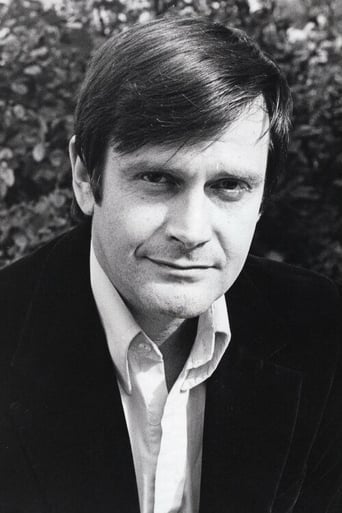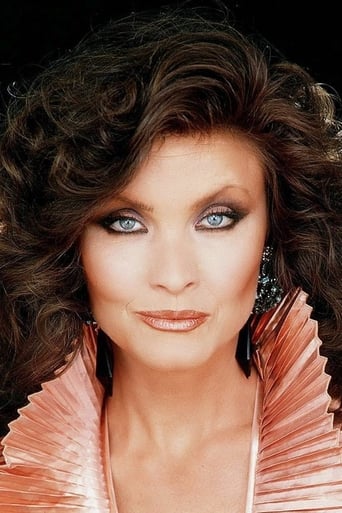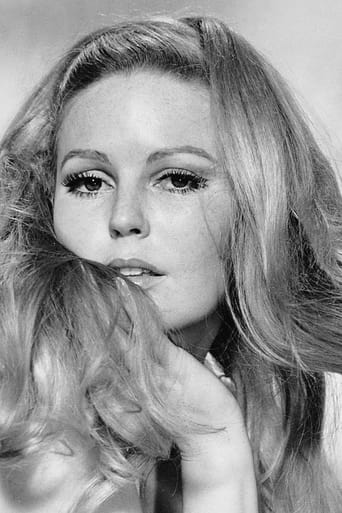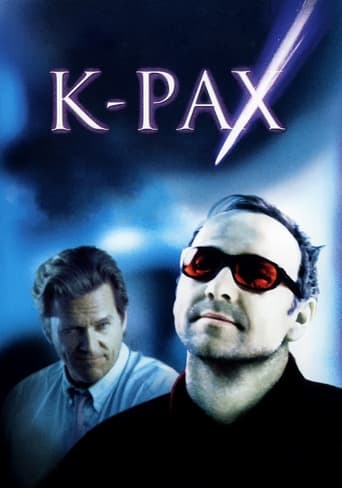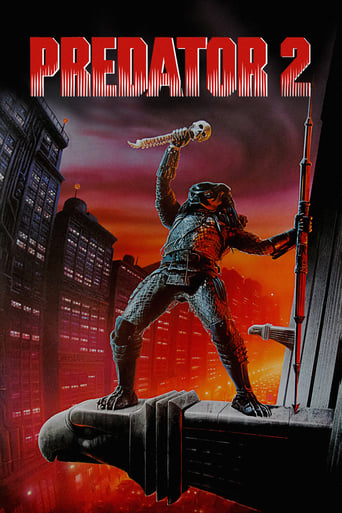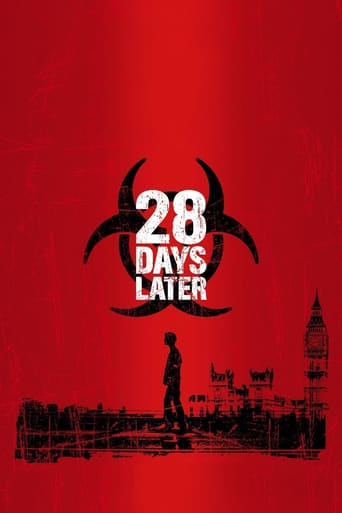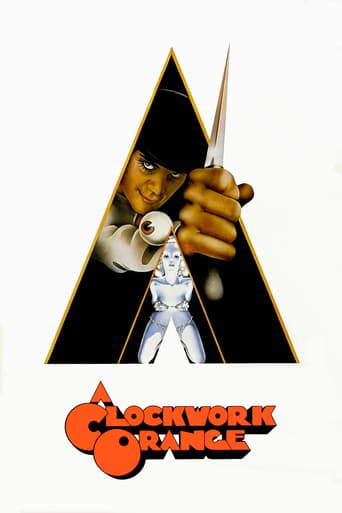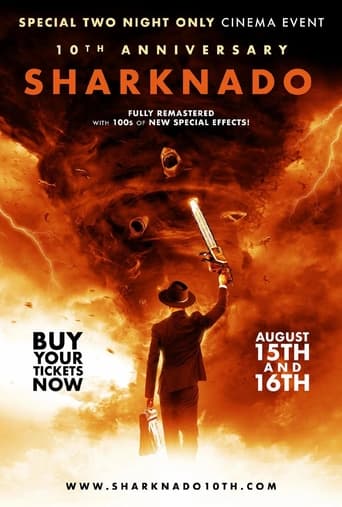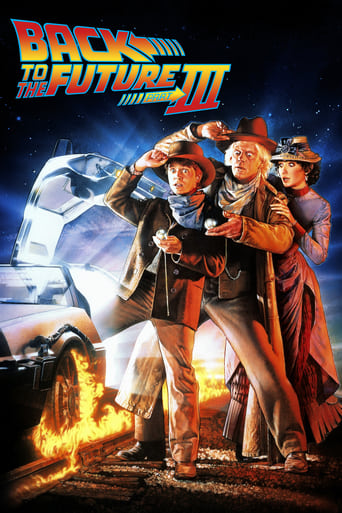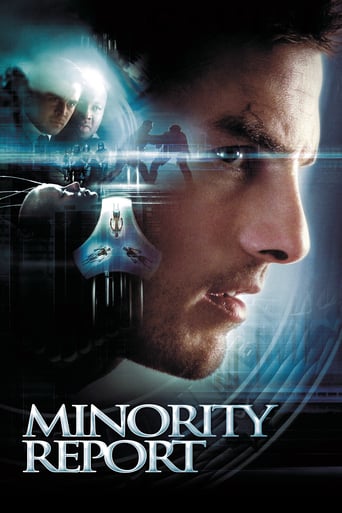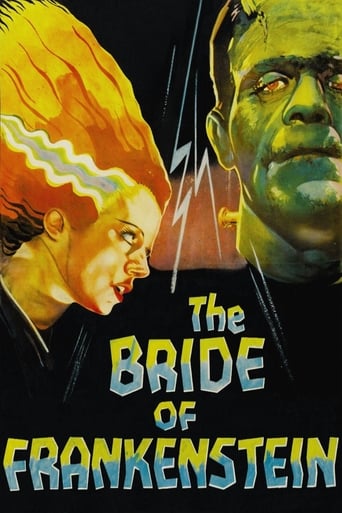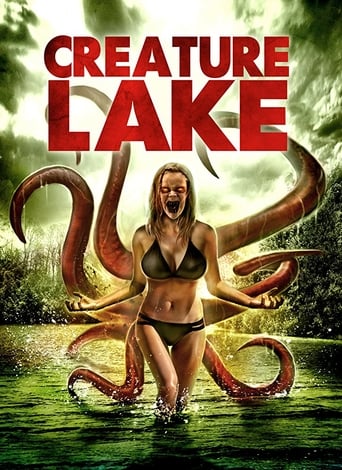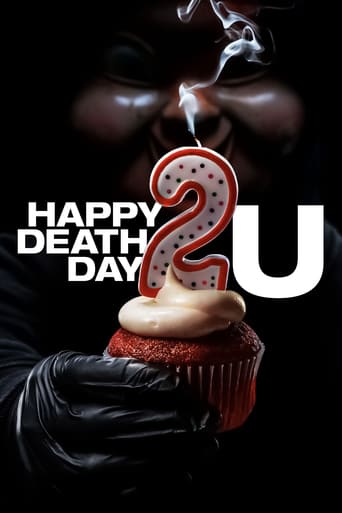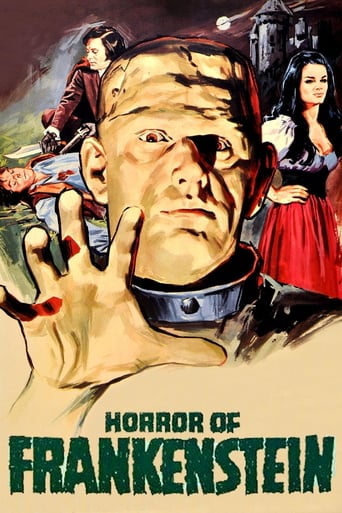
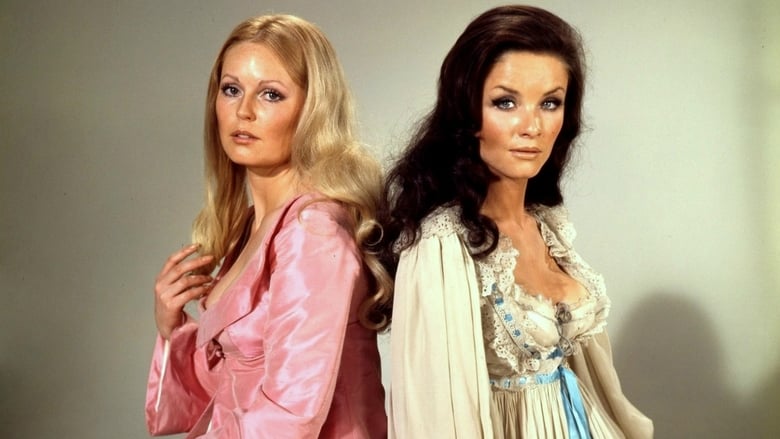
The Horror of Frankenstein (1971)
Young Victor Frankenstein returns from medical school with a depraved taste for beautiful women and fiendish experiments.
Watch Trailer
Cast


Similar titles
Reviews
Horror of Frankenstein was an attempt by Hammer films to reboot their long-running Frankenstein franchise, sans the star of the previous popular films, Peter Cushing. Despite the gaping hole left in the film by Cushing's absence, Hammer put together what was nonetheless a formidable cast and crew that should have managed to make a very fine picture. But at some point the decision was apparently made to reinvent the story as a comedy or satire on the whole Frankenstein theme, with virtually disastrous results. Director Jimmy Sangster was a solid choice to helm the film, but while everything is competently filmed the ridiculous tone ruins what is otherwise a rich and colorful Gothic atmosphere. As the title character, Ralph Bates may not be Peter Cushing but he does convey the sort of ruthless, amoral intelligence that the part demands, and it's likely that Mr. Bates could have played a more serious conception of the character quite well. Naturally, this being a Hammer production, the film is graced by a pair of especially lovely actresses in the well-endowed persons of Kate O'Mara and Veronica Carlson, and both of them do a fine job (and, notably, are allowed to play their roles rather seriously). O'Mara brings just the right amount of seductive charm and cold self-interest to the part of Frankenstein's housemaid and lover, while Carlson's innocent Elizabeth is absolutely irresistible (to any man but the twisted Frankenstein, at least). Without these two gifted actresses, the picture would be even more lackluster than it is. It should also be noted that the monster, played by David Prowse (yes, Darth Vader himself) is quite powerful and intimidating, with a bigger mean streak than Hammer often portrayed Frankenstein's creatures with. Prowse's monster is a nearly unstoppable killing machine, barely kept in check by Frankenstein's unholy influence, and provides a much-needed kick to the frequently silly proceedings. If the director had made a straight horror film, Prowse's version of the monster would probably be remembered as a truly frightening one. As it is, the tongue-in-cheek approach undercuts Prowse's effective performance. It's hard to imagine why the road to high camp was taken as opposed to Hammer's tried-and-true formula of Gothic chillers, unless someone was overcome by a burning desire to break out of the mould and do something different for a change. Horror of Frankenstein is different, though in a very unfortunate manner. All the pieces were in place to craft a fine remake of 1957's Curse of Frankenstein, but the satirical approach is a failure all-around. It's never even really funny, and the climax, as such, is a frustrating bomb of epic proportions. On the one hand, everyone involved deserves a lot of credit for managing to avoid making a truly awful movie despite the badly conceived humor, especially the beautiful Carlson and O'Mara and the imposing Prowse. But on the other, it's a shame that such a great opportunity was wasted. Hammer completists and fans of the cast may not regret checking this one out, but everyone else is better off sticking with Hammer's earlier, and more serious, Frankenstein efforts.
The only time Hammer presented a Frankenstein-Dracula double bill was in 1970, with "The Horror of Frankenstein" shot back-to-back with "Scars of Dracula." Neither was an artistic triumph, and both also slipped out together on the drive-in circuit in the US, courtesy of the short lived distribution outfit American Continental Films Inc.(their meagre five picture existence including one other Hammer title, 1970's "Lust for a Vampire"). These two films also began the downward spiral of Hammer Films, as American financing ended with their last production, "The Vampire Lovers" (done with American International Pictures). All future Hammers would find difficulty getting distributed outside Britain, and many would quickly find their way to American TV screens. "The Horror of Frankenstein" is an aberration in the Hammer series, the only entry without the beloved Peter Cushing in the starring role, although he did pose with the cast on the set for publicity purposes. Longtime Hammer screenwriter Jimmy Sangster originally passed on Jeremy Burnham's outline of the script, but once he was offered the chance to direct, he leapt at the opportunity. Groomed for horror stardom, Ralph Bates was the only choice for Victor Frankenstein, and this certainly qualifies as his finest hour at Hammer. Sangster went on to direct twice more for Hammer (1970's "Lust for a Vampire" and 1972's "Fear in the Night"), accounting for three of Bates' five Hammer titles, and they obviously worked well together. Critics at the time were somewhat positive in their reviews of this film, rather more negative toward "Scars of Dracula," and both have been quite maligned ever since. It's true that HORROR isn't up to the standards of the Peter Cushing features, but it's still superior to at least 1964's "The Evil of Frankenstein," the only other Hammer entry not directed by Terence Fisher (Freddie Francis did much better with 1968's "Dracula Has Risen from the Grave"). While Cushing tried hard to bring life (pun intended) to the Universal-imitation antics scripted by John Elder (producer Anthony Hinds) for EVIL, HORROR is a fairly straightforward remake of Hammer's own "The Curse of Frankenstein," the one that started it all in 1957. This time, the proceedings are done tongue-in-cheek, which Sangster now admits was a mistake, but I don't see how else they could have remade it, short of out and out comedy ("Andy Warhol's Frankenstein"). This way, viewers have the option of taking the film seriously, with the cast and crew sharing their amusement with the audience. The familiar plot is given life by the new interpretation, with Ralph Bates' Frankenstein starting out as a randy student interested in anatomy, mostly female, abruptly terminating his education to return to his ancestral castle to begin work on his own personal experiments. Right off the bat, we are presented with a Frankenstein that differs from Cushing's, in that this one performs his duties in the most self-serving manner possible, first arranging the 'accidental' death of his wealthy father, moving on to electrocuting his best friend when the fear of exposure prompts him to act quickly, and when his Monster escapes and commits murder, does not hesitate to put the blame on another trusted friend, engaged simply as a cook. The audience is kept at arms length from Bates, whose antics do not endear him to us, despite Sangster's attempts to soften things up with low key humor, acceptable to a point. He becomes more unlikable as the film goes on, especially when taunting Jon Finch's inspector, investigating the monster's mayhem. Veronica Carlson has little to do as Frankenstein's paramour, who isn't even allowed the privilege of becoming engaged to the man she loves, while luscious Kate O'Mara and her Irish accent steals every scene as the housekeeper/lover with the impressive cleavage. Dennis Price is great fun as the elderly grave robber whose pregnant wife (Joan Rice) does all the digging (Price would go on to play Dr. Frankenstein in two Jesus Franco turkeys). As The Monster, Dave Prowse is allowed to display his imposing weightlifter's physique wrapped in bandages, but later admitted he received little direction from Sangster. Given the square-headed, imitation Karloff look first employed for Kiwi Kingston in EVIL, Prowse hasn't much to work with, brought to life just 30 minutes before the film's conclusion. He periodically escapes and actually kills in obeying his creator's bidding, a plot device never employed by Cushing's Frankenstein, bringing back shades of Karloff and Lugosi working in tandem in 1939's "Son of Frankenstein." Prowse is allowed little in the way of personality, and would benefit from his later Monster in 1973's "Frankenstein and the Monster from Hell," this time opposite the always endearing Cushing. Yes, Ralph Bates suffers in comparison, but that's the way it was written, and quite understandable that no attempt was made to continue the series with him, despite the ending leaving him free to continue his work (at least Cushing was sentenced to hang). No classic, but not a bad film, "The Horror of Frankenstein" aired three times on Pittsburgh's Chiller Theater ("Scars of Dracula," "Lust for a Vampire" aka "To Love a Vampire," and "Fear in the Night" were also shown at other times)- Nov 30 1974 (followed by 1966's "Return from the Past" aka "Dr. Terror's Gallery of Horror"), July 10 1976 (following 1967's "King Kong Escapes"), and Dec 9 1978 (followed by 1965's "Planet on the Prowl" aka "War Between the Planets").
I want to say, up front, that this is a fine Gothic Frankenstein film. It's actually based upon a fairly straightforward Frankenstein theme, (semi-mad doctor wants to make monster, the brain is damaged, and the monster kills people), but Dr. Victor Frankenstein (very credibly played by Ralph Bates) comes off as a classic, if cultured, psychopath. He cares naught in the slightest about the sanctity of human life, as long as his vision of creating a man (from used parts) is fulfilled.Here are the numerous characteristics (events) which generate most viewers' dark paradigm of this particular Dr. Victor Frankenstein: 1. He has the sex drive of Don Juan and Rasputin combined and any consequences of his amorous advances do not concern him in the least. After impregnating his University Dean's daughter, he just drops her like a hot rock, never giving her a further thought. He also demands double-duty from his lovers... sex slave on demand and housekeeper routinely.2. He really savours killing people (you can tell by the smirk on his face as he does so), including his father, a highwayman (whom he also decapitates), his best friend and assistant, the provider of his corpses, and a local professor (via poison). He even kills an associate's pet tortoise with a smile! 3. He much enjoys setting his monster to killing: the corpse-snatcher's greedy wife, a lover and, a woodsman who happens to be in the wrong place at the wrong time.4. He's really into personal intimidation of those who are supposed to be his superiors while he is a medical student and later on too.This 1970 British story goes like this: Dr. Frankenstein decides (as a student) that his big goal will be to create a man (basically from corpse parts) so he takes on a pal whom eventually becomes more and more skittish as the experiments with body parts become more and more audacious and heinous. People who get into the way of the young Doctor's plans are snuffed without a second thought. So, what I'm saying here is that there are no huge surprises.True to the Hammer philosophy, this film is not hair-raising scary like, say, "The Exorcist," "Halloween," or Hitchcock's "Psycho," albeit it's a much darker film than all the other Hammer Frankenstein flicks. This is clearly due to the fact that this movie was directed by Hammer's fair-haired horror writer, Jimmy Sangster, who had clearly been drooling to actually direct one of these films. It's really all just quite entertaining.There are even intermittent moments of sly humor to be found throughout the movie. At one point, a buxom lass of the Doctor's former acquaintance is practically displaying her mammalian wares for him and he wryly comments, "You've gained weight in a couple of places." Nicely put! The monster is a bit of an enigma. Played by David Prowse, his face is left pretty much unchanged, make-up-wise -- there is just the add-on to the top of the head. The monster thus looks a lot like one of my larger neighbors. He's not a very shrewd monster as the brain, of course, was damaged somewhat by the corpse-snatcher having dropped it. Just your basic killer who generally follows his master's instructions in order to get fed. This particular brain, by the way, was a sort of steel-blue in its hue and I thought that was a little strange.The filmscore is superb, composed and conveyed by Malcolm Williamson. It embraces that late 60s atmospheric ambiance which goes along so well with period monster flicks, akin to the themes of the great Les Baxter. The film is shot in letterbox and the sets and locations are outstanding. The long shot of the ominous castle is simply timeless. The color saturation is of equal high-quality.In summary, we do somewhat miss the great Peter Cushing in this Hammer entry; however, it's a fine performance by Ralph Bates and his supporting cast and I think, overall, is one of the best Frankenstein films that I've seen anywhere.
I hadn't watched this one for years. So despondent was I with my own vague memories and subsequent negative reviews that I more or less consigned the film to the scrap heap. However, I caught part of it on ITV4 a few weeks ago and thought 'I wouldn't mind watching that'. Remembering that I had the DVD as part of a box set I settled down recently and prepared myself for what many people consider to be not only the worst of the Hammer Frankensteins, but one of their worst films generally and found my opinions, whilst not totally blown out of the water, were to change considerably. Inevitably the lack of Terence Fisher and Peter Cushing takes its toll; one only need compare 'The Evil of Frankenstein' (1964) directed by Freddie Francis to the others in Hammer's canon to realise just how much Fisher brought to the Frankenstein movie sub genre, and it was once said of Peter Cushing that he could have been the next Olivier. Despite these apparent shortcomings, the director, Jimmy Sangster, does manage to adhere here and there to accepted Hammeresque aspects and does include a couple of nice scenes; there's an almost fairy tale quality to the scene of the monster lumbering towards the woodsman's cottage and, although the majority of direction is pedestrian at best, there is the occasional flourish that suggests Sangster at least had the ability to do better. Ralph Bates does a good job in his role as the young Baron Frankenstein; the fact that so many people have described how pompous, spoilt, cold and unpleasant he is providing proof of the quality of his performance and the juxtaposition between his utter contempt for human life, a contempt that leads him to murder several people, including his father thereby killing off the old values for good, and his goal of creating life is quite well considered. Dave Prowse, who played the strongman in 'Vampire Circus' (1970) and a far more sympathetic monster in 'Frankenstein and the Monster From Hell' (1973) has little to do other than lumber around killing or threatening people but there is no denying that his is a physically intimidating creature that you really wouldn't want to come across while walking through the woods. Despite the lack of 'monster' makeup I actually found the design interesting and felt it suited this particular variation on the Frankenstein myth, perceiving the monster as a deeply psychotic extension of the Baron's already disturbed personality. Kate O'Mara is very convincing as the conniving Alys. Physically she reminds me of Nell Quick in James Herbert's excellent novel 'Once' and Veronica Carlson does her best with a fairly weakly written role. The next acting honours must go to Denis Price as the grave robber and Joan Rice as his downtrodden wife. I was, I suppose, surprised at how tame this movie was. Given the strength and gore quotient in the same year's 'Scars of Dracula', it would have seemed obvious to extend the gore factor in this one; there is very little horror in 'The Horror of Frankenstein' beyond the horror of what humans are capable enough if they are driven in the way Frankenstein appears to be here. All in all though, 'The Horror of Frankenstein' is a fairly intriguing relic; a reminder of a time before cinema audiences were so completely desensitised that they need shock after shock to sustain their interest and an unusual, if watered down, echo of Hammer's prior greatness.


